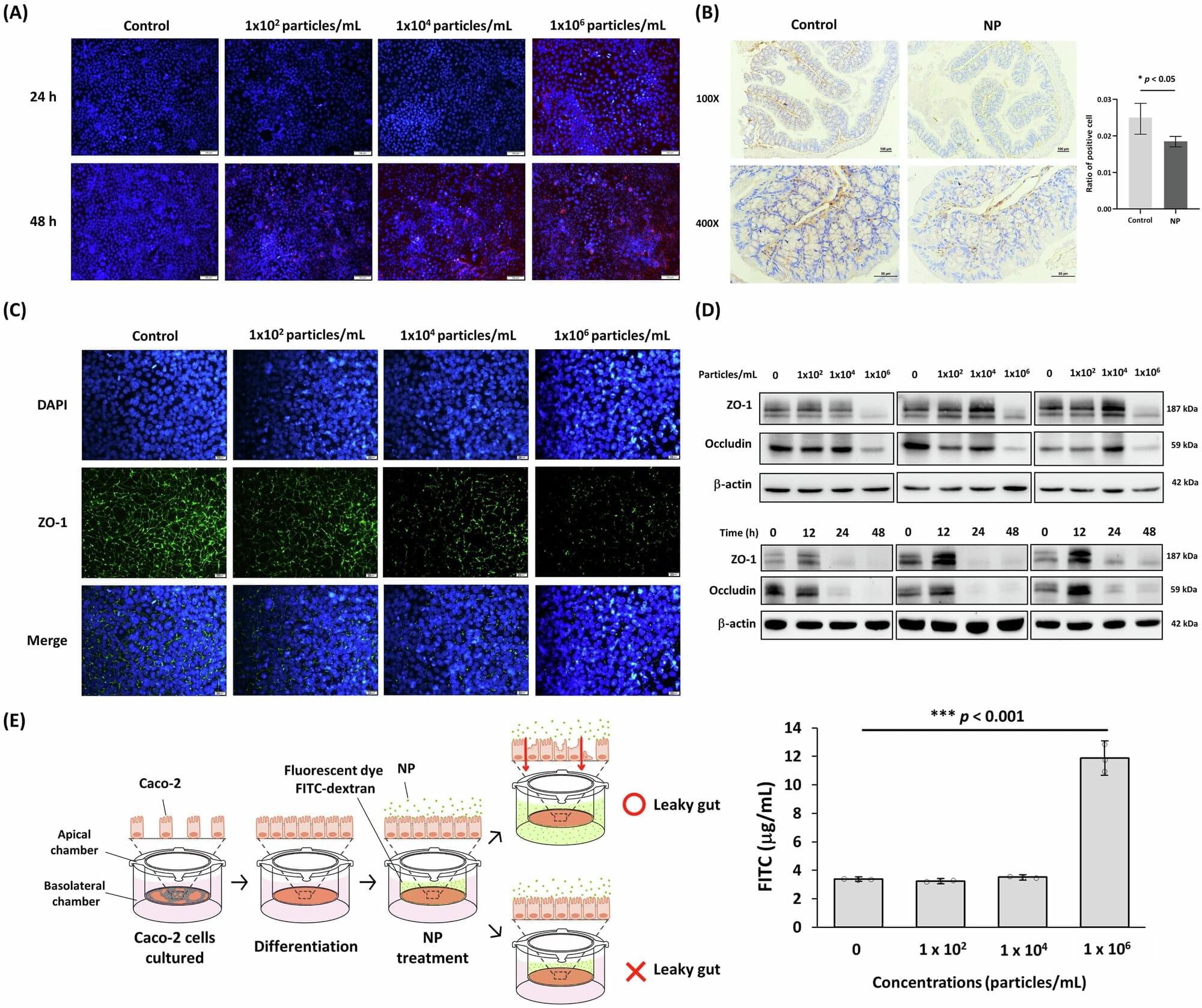Nanoplastics can compromise intestinal integrity in mice by altering the interactions between the gut microbiome and the host, according to a paper in Nature Communications. The study explores the complex interactions of nanoplastics with the gut microenvironment in mice.
Nanoplastics are pieces of plastic less than 1,000 nanometers in diameter, which are created as plastics degrade. Previous research has suggested that nanoplastic uptake can disrupt the gut microbiota; however, the underlying mechanism behind this effect is poorly understood.
Researcher Wei-Hsuan Hsu and colleagues used RNA sequencing, transcriptomic analysis and microbial profiling to analyze the effects of polystyrene nanoplastics on the intestinal microenvironment when ingested in mice. They found that nanoplastic accumulation in the mouse intestine was linked to altered expression of two proteins involved in intestinal barrier integrity (ZO-1 and MUC-13), which could disrupt intestinal permeability.

Lots of nano particles made of various elements besides polystyrene in the environment that are toxic because of their extremely small size. But, hey, all you “scientists” know this, don’t you.